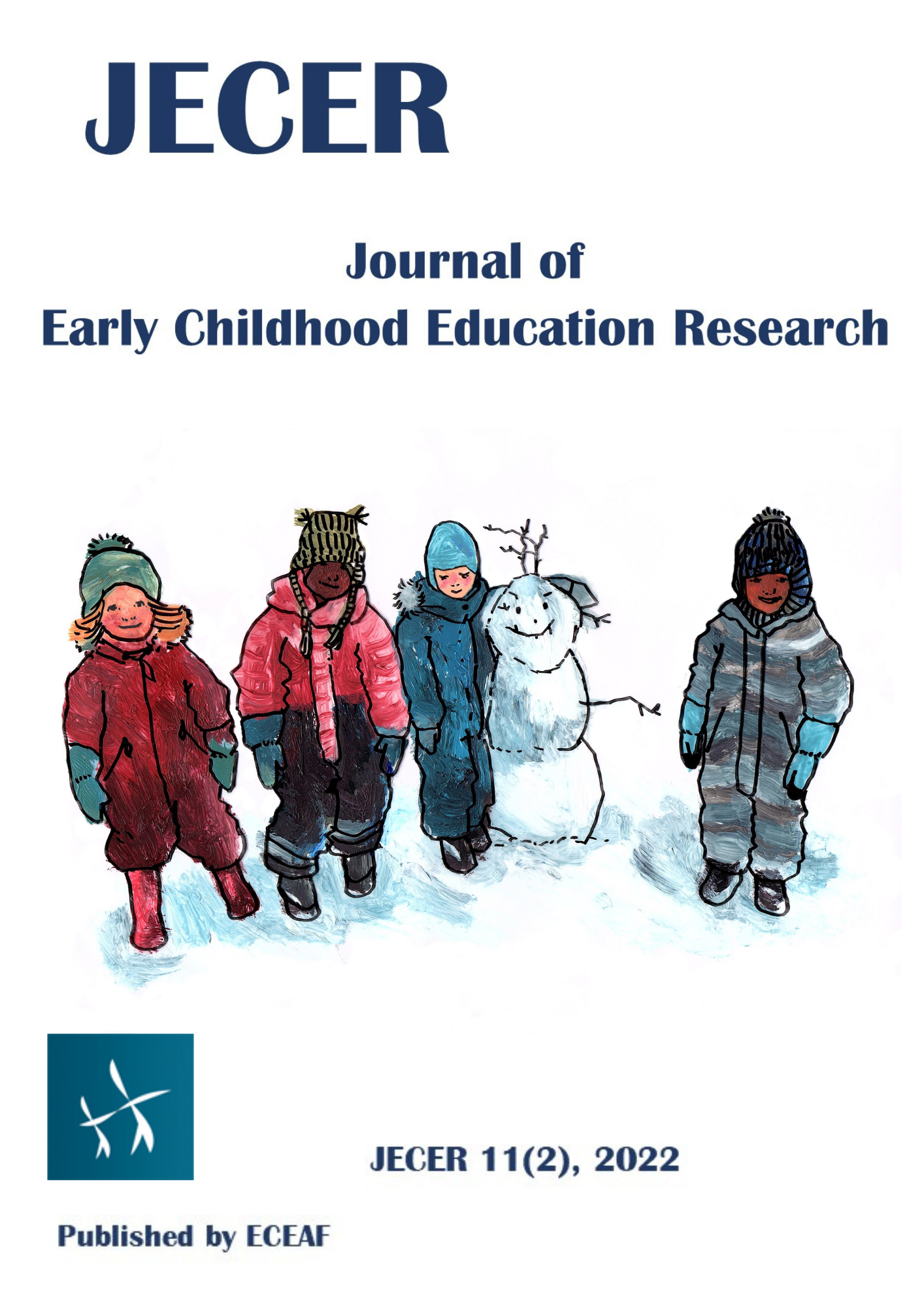Käsityksiä yhteistoimijuudesta varhaiskasvatuksen toimintaympäristössä
Avainsanat:
yhteistoimijuus, varhaiskasvatus, lasten kuntoutusAbstrakti
Kuntoutuksen ja kasvatuksen yhteistoiminnan on pitkään kuvattu olevan murrosvaiheessa, jossa yksilöasiantuntijuuteen perustuvista toimintamalleista pyritään kohti yhteistoimintaa ja lapsen arjessa tapahtuvaa kuntoutusta. Yhteistoimijuudella pyritään tuen oikea-aikaiseen tarjoamiseen lapselle siten, että siitä hyötyy koko varhaiskasvatusyhteisö. Tutkimustehtävänä oli kuvata ammattilaisten sekä lasten vanhempien käsityksiä yhteistoimijuudesta varhaiskasvatuksen yhteistoiminnassa. Aineisto kerättiin yksilöhaastatteluina (n = 10) osana kehittämishanketta varhaiskasvatusympäristössä, jossa oli pidempään toiminut yhteisöllinen puheterapeutti ja hankkeen ajan myös toimintaterapeutti. Aineisto kerättiin ja analysoitiin fenomenografisella menetelmällä. Käsitykset yhteistoimijuudesta jakaantuivat neljään hierarkkisesti laajenevaan kuvauskategoriaan: tiedon jakaminen, eri näkökulmien yhdistely, yhteistä päämäärää kohti työskentely ja yhdessä arjessa toimiminen. Kategorioiden välisiä kriittisiä eroja tarkasteltiin kolmen sisällöllisesti varioivan teeman kautta: toimijoiden roolit, yhteistoiminnan eri muodot ja lopputulos. Tutkimuksen tulokset mukailevat aiempaa tutkimustietoa yhteistoimijuudesta ja terapeuttisesta yhteistoiminnasta, mutta tuovat esiin vanhempien ja ammattilaisten laadullisesti erilaisia käsityksiä yhteistoimijuudesta. Varhaiskasvatuksen yhteistoiminnassa tarvitaan uudenlaisia kasvatusta ja kuntoutusta yhdistäviä toimintatapoja ja malleja, sekä erityisesti vanhempien roolin ja toimijuuden vahvistamista.

